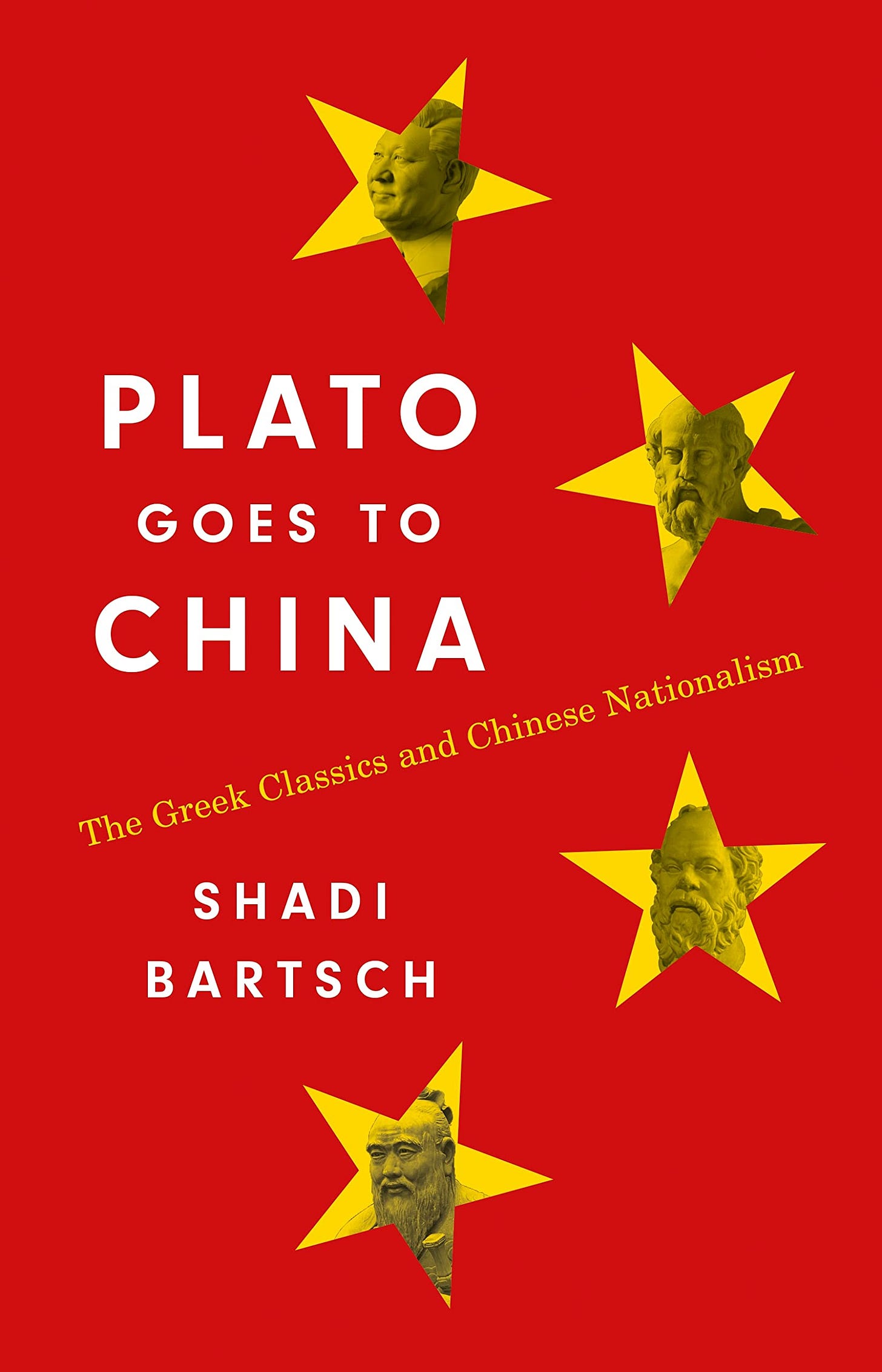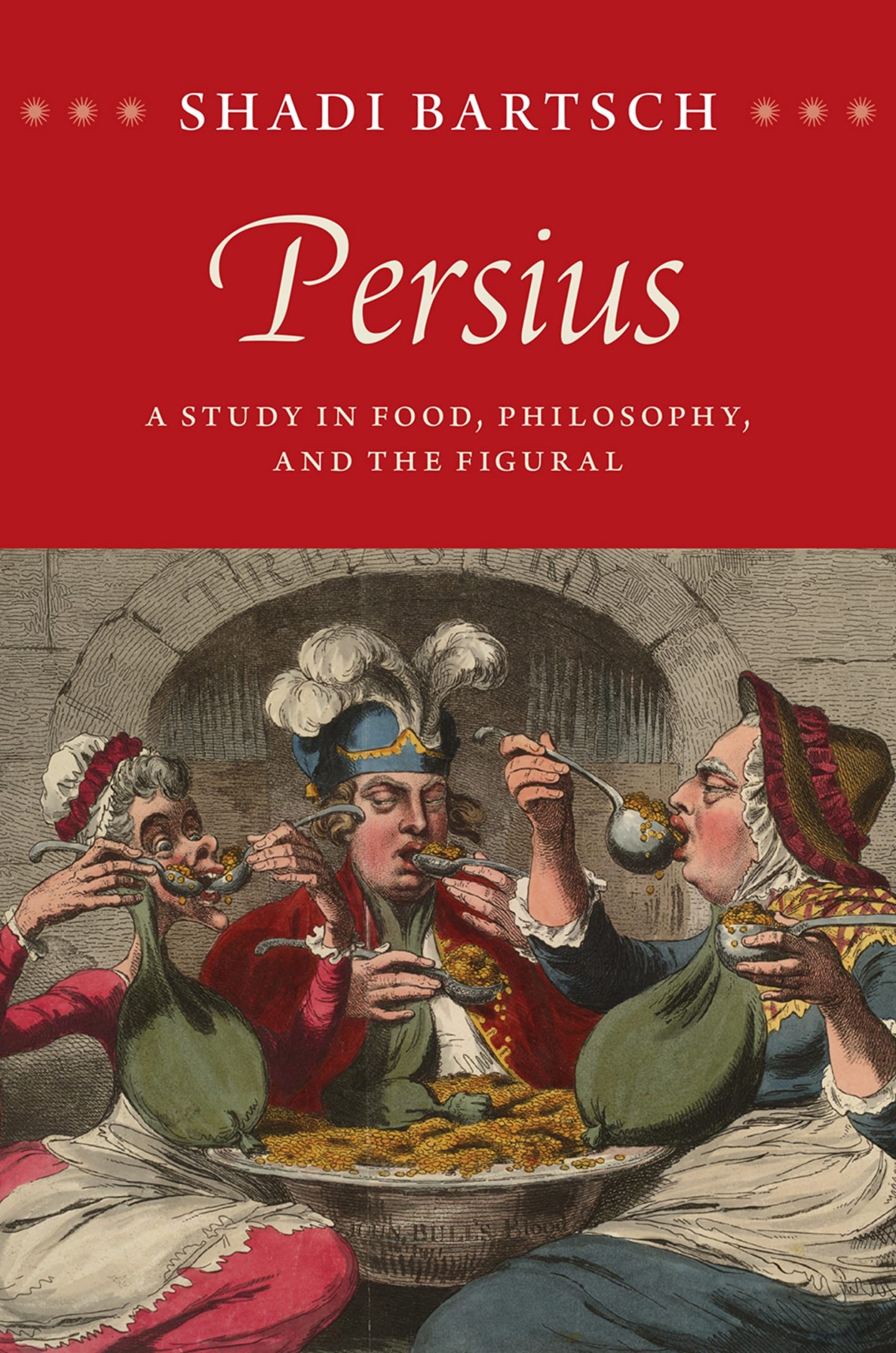Classics as a Bridge to the World
Shadi Bartsch on Translating Vergil, What’s Missing in the Stoic Revival, and the Problem of Interpretation
Shadi Bartsch is a professor of classics at the University of Chicago. A prolific scholar, she’s written, edited, and translated more than a dozen books, including Plato Goes to China, the award-winning Persius, and a widely acclaimed translation of Vergil’s Aeneid. She directs the Institute for the Formation of Knowledge, which encourages knowledge developed not within but between disciplines, and also edits the institute’s journal, KNOW.
I first encountered Bartsch on Conversations with Tyler and have enjoyed following her on Twitter/X. I wanted to talk with her abut her work, the classics more broadly (including their use and abuse), as well as the challenge of interpretation.
Miller: How did you come to study classical literature? What drew you in and what holds you there?
Bartsch: A few moments that felt decisive: When I was eight years old, I read a children’s version of the Odyssey and was fascinated by the world it depicted. A few years later I stumbled upon “Classics at Oxford” in an old reference book at my school library in Geneva (that’s not where I went, long story). And by sixteen I developed an invidious crush on a fellow high-school student who said he was going to learn ancient Greek. He didn’t, but I did. My path was like that, a mixture of chance and inclination.
What keeps me there: a lot. It’s a focal point in the history of the West. Its philosophies and literatures still make us think; in it we are both mirrored and estranged. I never stop learning, and that’s partly because I find this one rich tradition a bridge to others, not an impediment. I will never be “of” this culture—it’s too old, too different—but that doesn’t mean it’s not worth studying.
“I never stop learning, and that’s partly because I find this one rich tradition a bridge to others, not an impediment.”
—Shadi Bartsch
A fresh translation of an epic poem such as Vergil’s Aeneid is a major undertaking. What sets your Aeneid apart from other translations?
First let me say that all translations are set apart from each other with their virtues and faults. I’m at the tail end of a very long chain of brilliant interpreters of the Aeneid, Dryden included, and I’m no Dryden. But in translating I did make a series of choices that helped to convey the fast-paced force and ideological brilliance of the Aeneid.
The meter doesn’t exceed the six feet of the original, and each line is calibrated with the Latin text. I pay attention to Vergilian effects like assonance and alliteration while remaining strictly faithful to the words of the text. I pay attention to the potential meaning of excluded voices. And there’s extensive introduction and notes that explain the context of much of the poem’s content.
Above all, I wanted the translation to be clear, crisp, and accessible, yet not trendy. I hope I’ve gotten close.
What does the Aeneid have to teach us two millennia after it was first written?
I imagine it is teaching all of us differently; the text is that pliant and complicated. So I can’t speak about the “us” so much, especially since you could probably not get a group of classics professors to agree on the content, but I can tell you what it has to teach me. The first is the way texts are always interpreted differently within differing contexts of history, class, ideology, religion, literacy, gender, and other prisms. They can’t mean on their own; it takes two.

The second is that if people assume approval of a poem from Augustus means that the poem is clearly pro-Augustan. That’s how and what they’ll see—for two thousand years, at that—but that relationship of politics to poetry is more complicated than an imperial nod.
Finally, I learned that subtleties of translation can make huge differences in how a poem is presented to its later readers. Is Dido a hysterical woman, or is everything she says true? The tiniest cues make a difference, even when the translation is as literal as possible.
“Texts are always interpreted differently within differing contexts of history, class, ideology, religion, literacy, gender, and other prisms. They can’t mean on their own; it takes two.”
—Shadi Bartsch
You’ve written about the uses and abuses of classical texts by both the alt right and the Chinese government. When I think about that, I’m reminded of Hilary of Poitiers’s line, ”Non in legendo, sed in intelligendo”—not in the reading but in the understanding. How can readers be sure we’re taking the best from these texts, not misusing them?
The analogy to Hilary of Poitiers’s line is so interesting because it highlights all the issues surrounding how one creates meaning out of the text. For Hilary, of course, it meant that there was only one way to interpret the Bible and that the act of reading had to come second to the meaning you already knew it must have, to match current doctrine. (St. Augustine would say much the same in On Christian Doctrine.)
For us on the other hand, it might point out how our understandings are all different. Put the two possibilities together and you get an interesting tension: which comes first, meaning or ideology? Probably asking these questions is the closest we can get to making sure we know what we are doing in reading.

Ancient Stoicism is experiencing a renewal. As the editor of The Complete Works of Seneca and The Cambridge Companion to Seneca, what do you think of this revival, and what’s one feature of ancient Stoicism modern Stoic popularizers might be missing?
Some of my best friends are renewers of ancient Stoicism 😊. I think it’s always held a fascination because of the capacity for enduring that it seems to bestow upon its followers: they learn that all you can control is your own mind, and that once you learn that, you’ll become indifferent to the choices and circumstances you cannot affect.
Imagine getting less upset at things going badly, or your reevaluation of concerns that seem trivial in view of the cosmos. Ironically the Stoics also believed in a cyclic world destruction by fire called the ekpyrosis; so I guess both an old Stoic and a modern Stoic get to gird their loins for that event.
What might be missing: maybe, as was much more emphasized in early Greek Stoicism, the close relationship between physics, logical thought, and ethics as well as on the happy life. It’s sad that this ancient understanding of different fields as closely connected is one that our current division between the humanities and sciences doesn’t reflect.

You’re the director of the Institute for the Formation of Knowledge. Can you tell us about its mission and work?
IFK is an initiative to explore discipline-agnostic forms of knowledge—that is, forms of knowledge that don’t fit neatly into departments and disciplines but are being generated in the spaces in between.
A few colleagues and I created the impetus for the Institution almost a decade ago, when it became increasingly clear to us that the division of knowledge in modern higher education was actually standing in the way of advance in many areas. With complicated areas such as artificial intelligence, data science, and global warming, I hope that this need for multifaceted inquiry has become more obvious.
IFK also supports eight postdocs whom we select not only for their promise and intelligence, but also because their research fits in no recognizable field of study. An easy historical analogy comes from the fact that psychology and economics only recently understood the necessity for a field called behavioral economics, which in retrospect looks stunningly obvious.
The institute offers five tenets to shape our understanding of knowledge. Two would seem to have direct bearing on this question of interpretation and the use of ancient texts. First, “All knowledge forms are embedded in a specific context, and are shaped by that context.” Second, “Knowledge at any given time is exactly equal to what people think is true. As such, sub-knowledges, unauthoritative knowledges, and disputed knowledges can all exist simultaneously inasmuch as ‘people’ is a plural concept.” Based on those tenets, what grounds or tools do we have to use ancient texts and counter their misuse?
I’m not sure that’s exactly the terminology I would use in discussing these questions. Any time we read any text we’re bringing certain assumptions to it, because we can’t escape the concepts and experience our interpretations are embedded in. We can try in good faith, and we can also pay attention to the cultural contexts in which the original text was generated, but in my opinion there is always an element of appropriation: we are willy-nilly using these texts to do various things, most obviously to generate meanings that work within our own conceptual frameworks.
This is a sliding scale, of course: one’s appropriation can be more ideological, create greater distortions in the text, more willfully ignore what doesn’t fit with one’s own perspective or purpose. These tenets do guide us in looking for tools for self-aware reading practices, however. They remind us to think about historical context, ideologies, self-contradictory perspectives emerging from a single text, the social status of the author, and so forth.
“It’s sad that this ancient understanding of different fields as closely connected is one that our current division between the humanities and sciences doesn’t reflect.”
—Shadi Bartsch
The plurality covered in the second of those two tenets would seem out of favor right now in American universities. There appears to be pressure from both students and administrators to toe certain lines. How would you describe the ideological climate on American university campuses and what would improve it?
That’s an interesting question. I’d say there exists a plurality of knowledges among different populations, and you are asking a followup question about the moral perspectives arising from those knowledges. This is not an easy topic.

Moral perspectives need to seem timeless or else they can’t make claims to authority, but the problem is that moral perspectives actually do change over time. The only possible way to deal with this is for people to claim we’re at the end of the line—we’re the most moral we’ve ever been. I’m suspicious of this teleological view, and I think college students might do better to focus on discussion and debate rather than cleave to their own truths.
“College students might do better to focus on discussion and debate rather than cleave to their own truths.”
—Shadi Bartsch
And now three questions of threes: What are your three personal favorite works from the classical period?
Vergil’s Aeneid. It’s so self-reflective it’s hard to wrap your head around. Lucretius’s De Rerum Natura. Stark and compelling philosophy in beautiful lines of Latin. And, perhaps oddly, Sophocles’s Philoctetes. The experience of feeling like you are disgusting to other humans despite anything that you can do, for whatever reason—I find this heartbreaking.
You can invite any three authors for a lengthy meal. Neither time period nor language is an obstacle. Who do you pick, why, and how does the conversation go?
(You didn’t mention budget! My research account has very low allowances for wining and dining.)
I’m fascinated by narratives that become belief systems for making sense out of the world, such as Marxism or Freudian psychoanalysis, or for that matter Christianity or Buddhism. And that includes non-political, philosophical, and religious narratives, like the Galenic theory of the humors that explained so much and survived for so long, or the pre-Copernican belief about nature of the universe, or Plato and Parmenides’s division of the world into reality and illusion.
I’d like to talk to any one of these system-builders, and what I’d like to talk about is how and why they came to believe in their own worldviews.
Finally, if you had the chance to suggest three works from the classical period to help explain our current world, what would you recommend?
My dear Mr. Miller, nothing can explain our current world.
Thanks for reading! If you enjoyed this post, please hit the ❤️ below and share it with your friends.
Not a subscriber? Take a moment and sign up. It’s free for now, and I’ll send you my top-fifteen quotes about books and reading. Thanks again!
Related posts:





Great interview!
Brilliant interview Joel. What a fascinating individual. I am going to need to check out that translation of Virgil. Appreciate the depth and scope of your questions. Makes for a very good read. All the best, Matthew